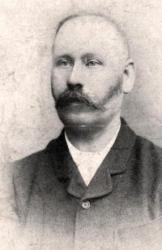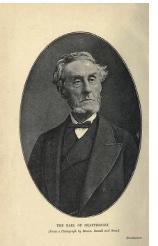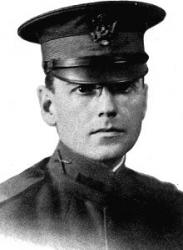Planning worship?
Check out our sister site, ZeteoSearch.org,
for 20+ additional resources related to your search.
- |
User Links
Person Results
‹ Return to hymnal





Export as CSV
G. H. Arfon

1849 - 1919 Person Name: Griffith Hugh Jones, 1849-1919 Hymnal Number: 75 Composer of "LLEF" in Trinity Hymnal Also used the names Gutyn Arfon and Griffith Hugh Jones.
G. H. Arfon
William Leighton
1565 - 1622 Hymnal Number: 273 Composer of "LEIGHTON" in Trinity Hymnal Sir William Leighton (/ˈleɪtən/; c. 1565–1622) was an Elizabethan composer and editor who published The Teares and Lamentatacions of a Sorrowfull Soule (1614) which comprised 55 pieces by 21 composers (among them John Bull, William Byrd, John Dowland and Martin Peerson), including eight by himself. There is a modern edition published by Stainer and Bell and a modern facsimile. Several radio broadcasts have been made but no commercial recording has been carried out yet.
The book is historically important because it has parts for an instrumental accompaniment of broken consort and introduces the term "consort song".
--en.wikipedia.org/wiki/William_Leighton
William Leighton
Edwin Hodder

1837 - 1904 Person Name: Edwin Hodder Hymnal Number: 257 Author of "Thy Word is like a garden, Lord" in Trinity Hymnal Hodder, Edwin, published in 1863 The New Sunday School Hymn Book, and in 1868 a New and Enlarged edition of the same. To this collection he contributed 27 hymns, each of which is headed with his name. Of these nearly one half have passed into other hymnals for children, including Major; the Baptist Sunday School Hymn Book, 1880 ; the Sunday School Union Voice of Praise, 1886, and others. Born in 1838.
--John Julian, Dictionary of Hymnology, Appendix, Part II (1907)
=======================
Hodder, Edwin, p. 1571, i., was b. Dec. 13, 1837, at Staines, Middlesex, and went to New Zealand in 1856. After his return he joined the English Civil Service in 1861, retiring in 1897, and finally resided at Henfield, Sussex. He d. March 1, 1904. He was the author of many works, biographical, devotional and other, the earliest being Memories of New Zealand Life, 1862, and the latest The Life of a Century, 1900. His hymns appeared in his New Sunday School Hymn Book, 1863, and 2nd ed. 1863, including:—
1. Father, give us now Thy blessing. Close of School.
2. Lord, we bring our work to Thee. Christian Service.
3. The night was wild, and stormy winds. It is I.
4. The Saviour loves all children. Jesus the Children's Friend.
5. Thy Word is like a garden, Lord. Holy Scripture.
Of these Nos. 1, 3, 5, appeared in 1863, Nos. 2, 4 were added in 1868. [Rev. James Mearns, M.A.]
--John Julian, Dictionary of Hymnology, New Supplement (1907)
Edwin Hodder
Jeremiah Eames Rankin

1828 - 1904 Person Name: Jeremiah E. Rankin, 1828-1904 Hymnal Number: 632 Author of "Till we meet, till we meet" in Trinity Hymnal Pseudonym: R. E. Jeremy.
Rankin, Jeremiah Eames, D.D., was born at Thornton, New Haven, Jan. 2, 1828, and educated at Middleburg College, Vermont, and at Andover. For two years he resided at Potsdam, U.S. Subsequently he held pastoral charges as a Congregational Minister at New York, St. Albans, Charlestown, Washington ( District of Columbia), &c. In 1878 he edited the Gospel Temperance Hymnal, and later the Gospel Bells. His hymns appeared in these collections, and in D. E. Jones's Songs of the New Life, 1869. His best known hymn is "Labouring and heavy laden" (Seeking Christ). This was "written [in 1855] for a sister who was an inquirer," was first printed in the Boston Recorder, and then included in Nason's Congregational Hymn Book, 1857. Another of his hymns is "Rest, rest, rest, brother rest." He died in 1904. [Rev. F. M. Bird, M.A.]
--John Julian, Dictionary of Hymnology (1907)
========================
Rankin, J. 33., p. 951, ii. Dr. Rankin, b. in N. H. (not New Haven), and received his D.D. 1869, LL.D. 1889 from his Alma Mater. He was President for several years of Howard University, Washington, D.C. His publications included several volumes of Sermons, German-English Lyrics, Sacred and Secular, 1897; 2nd ed. 1898, &c. In addition to his hymns noted on p. 951, ii., he has written and published mainly in sheet form many others, the most important and best-known being:—
1. God be with you till we meet again. [Benediction.] Dr. Rankin's account of this hymn, supplied to us, in common with Mr. Brownlie, for his Hymns and H. Writers of The Church Hymnary, 1899, is: "It was written as a Christian good-bye, and first sung in the First Congregational Church, of which I was minister for fifteen years. We had Gospel meetings on Sunday nights, and our music was intentionally of the popular kind. I wrote the first stanza, and sent it to two gentlemen for music. The music which seemed to me to best suit the words was written by T. G. Tomer, teacher of public schools in New Jersey, at one time on the staff of General 0. 0. Howard. After receiving the music (which was revised by Dr. J. W. Bischoff, the organist of my church), I wrote the other stanzas." The hymn became at once popular, and has been translated into several languages. In America it is in numerous collections; and in Great Britain, in The Church Hymnary, 1898, Horder's Worship Song, 1905, The Methodist Hymn Book, 1904, and others. It was left undated by Dr. Rankin, but I.D. Sankey gives it as 1882.
2. Beautiful the little hands. [Little ones for Jesus.] Given without date in Gloria Deo, New York, 1900.
Dr. Rankin's translations include versions of German, French, Latin, and Welsh hymns. His contributions to the periodical press have been numerous.
--John Julian, Dictionary of Hymnology, New Supplement (1907)
Jeremiah Eames Rankin
Alfred Reginald Allen

1876 - 1918 Person Name: Alfred R. Allen Hymnal Number: 513 Composer of "ST. HELENA" in Trinity Hymnal Allen graduated in medicine at the University of Pennsylvania (1898). He began his career in neurology at the University of Pennsylvania and Philadelphia General Hospital. He was also musically gifted, working especially with operas. He was killed in action during World War I.
Alfred Reginald Allen
G. C. E. Ryley
Person Name: Geoffrey C. E. Ryley, 1886-1947 Hymnal Number: 556 Composer of "SARRATT" in Trinity Hymnal
G. C. E. Ryley
Henry Vander Werp
1846 - 1918 Person Name: H. Vander Werp Hymnal Number: 47 Composer of "REHOBOTH" in Trinity Hymnal
Henry Vander Werp
William Horsley

1774 - 1858 Hymnal Number: 191 Composer of "HORSLEY" in Trinity Hymnal Born: November 15, 1774, Mayfair, London, England.
Died: June 12, 1858, Kensington, London, England.
Buried: Kensal Green Cemetery, London, England.
Horsley studied music privately, then became organist of Ely Chapel, Holborn, London, in 1794. He assisted Dr. J. W. Callcott (who encouraged him in persevering at Glee-writing, at which he became successful) as organist of the Asylum for Female Orphans, and married Callcott’s daughter. He succeeded Callcott in 1802, holding that post 52 years. A difference of opinion with the Asylum Committee led to him being dismissed. In 1838 he also became organist of Charterhouse "at a salary of £70 and a room set apart and a fire provided when necessary for his use on those days upon which his duty requires his attendance at the Hospital." He founded the London Philharmonic Society, and in later years was a close friend of Felix Mendelssohn.
J. C. Horsley, the eminent painter, relates in his Reminiscences the following experience when he went with his father to one of the services:
"When I was four years old my father was organist to the Asylum for Female Orphans, which was a stately building on the Westminster Bridge Road; and one Sunday he took me in with him to the morning service and landed me in the organ-loft. Everything was new and surprising to me, especially the crowd of buxom girls, at least a hundred in number, all dressed alike, ranged right and left of the organ, and who, when the organ had played a bar or two of the opening hymn, sang out with open mouths and such energy that I was positively scared, and in continently accompanied the performance with a prolonged howl; upon which my father, continuing to play the accompaniment with one hand, supplied me promptly with paper out of his capacious pocket, where he always kept a store of backs of letters (envelopes were not invented then), and a silver pencil-case of heroic proportions, thus quieting me." Lightwood, pp. 171-72
--www.hymntime.com/tch/
William Horsley
Richard J. Oliver
Hymnal Number: 673 Author of "He Was Wounded for Our Transgressions" in Trinity Hymnal
Richard J. Oliver
Ralph Harrison
1748 - 1810 Hymnal Number: 20 Composer of "WARRINGTON" in Trinity Hymnal
Ralph Harrison


 My Starred Hymns
My Starred Hymns

